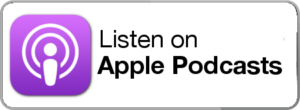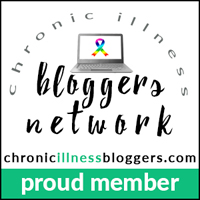One of the great advantages to being a consultant and having time flexibility is the chance to attend daytime events. A couple of weeks ago I attended the Brain Health Symposium at San Francisco’s Commonwealth Club. Seven highly-qualified and fascinating guest speakers each presented about an area related to brain health. I’ll provide some of the highlights but I encourage you to visit the Commonwealth website to listen to a podcast if anything piques your interest.
Patty James is a local health educator and nutritionist. She spoke about the need for omega 3 fatty acids which are found in brain-healthy foods such as walnuts, flax seeds, and wild caught salmon. She stressed that we buy our nuts and seeds raw. Another essential ingredient for a brain-healthy diet is water. Our brains are 80% water so it’s vital to hydrate. For people that find water’s taste boring, try adding a little juice to your water. And if you didn’t know already, caffeinated drinks and sodas are not hydrating.
Personally I love good-tasting water. I consider San Pellegrino my wine. When I’m feeling a bit decadent, I buy Metromint waters. A chilled bottle of the chocolate Metromint is amazing.
The next speaker was William Grant, PhD, a health researcher and founder of SUNARC. Dr. Grant spoke about the benefits of vitamin D for the brain and body. I’d read recently in the news about studies of children developing rickets due to lack of sun exposure. Rickets? In the year 2009 in America?!
Apparently the lack of vitamin D has been correlated to 14 types of cancer as well as diabetes, autoimmune diseases, and cardiovascular disease. If you want to know more, I urge you to check out the weblink above or do a web search. I’m definitely not doing justice to these topics.
Dr. Daniel Amen is famous, and like Suzie Orman and Wayne Dyer, a staple on PBS. I personally have never read one of his books but his name was familiar. His work focuses on brain imaging studies, and we were treated to pictures of brains from heroin addicts as well as healthy brains. Amen told us that sugar and fat work on the addiction centers of the brain like heroin.
The gist of Amen’s presentation could be summarized in his first of 10 steps to change your brain, “Boost your brain to lose your body.” Apparently 20-30% of calories are consumed by the brain. The message is simple — get plenty of sleep, exercise, stay away from toxins such as caffeine, alcohol, and nicotine. I won’t go into all 10 steps; you’ll have to buy his latest book for that. Here are a few other simple tips:
- Eat a nutritious breakfast and smaller meals throughout the day
- Try to eliminate simple sugars in your diet.
- Know your body mass index.
- Know how many calories you consume each day. For most people to maintain their weight, consume about 2,000 calories.
- Brain healthy spices include turmeric, saffron, sage, oregano, rosemary, mint, cinnamon, and ginger.
And Dr. Amen reiterated the need for omega 3 fatty acids and vitamin D.
Dr. Adam Gazzaley is the Director of the UCSF Neuroscience Imaging Center. His brain scans are different from Dr. Amen’s. Gazzaley works with functional MRIs — pictures of the brain when it’s engaged with an activity.
Apparently Gazzaley has worked on aging since he was 22 years old. He clarified the distinctions between normal aging, mild cognitive impairment, dementia, and Alzheimer’s disease. Dementia is a syndrome, not a disease. Our cognitive abilities for speed and executive functions peak in our 20s. Sad news, huh?
Again it was reiterated how important diet is; Gazzaley recommended the low calorie Mediterranean diet. I think Andrew Weil promotes this diet as well. Physical exercise, mental exercise, and he advocated for stepping out of your comfort zone by challenging yourself. He suggested socializing and travel. Maybe starting a blog?
The next presenters were Phil Jacklin, PhD and Steve Fowkes, a biochemist. The time allotment for the symposium was near its final thirty minutes by the time these men were introduced and they rushed through their Powerpoint slides. It’s all about Alzheimer’s disease — the connection with a mercury imbalance and other risks such as root canal surgery. If you’d like to know more I suggest doing a web search on their names; Fowkes said he has a YouTube channel where his entire 1.5 hour presentation can be viewed.
The final speaker, Dr. Judith Orloff, is another well-known person with a number of published books. She was very conversational, no Powerpoint slides. I sat back and listened and didn’t take many notes. She’s the kind of doctor, a psychiatrist, you’d want on your team. She’s not quick to write a prescription and wants to know your spiritual beliefs. My favorite line of hers, “we can learn to harness our own biology.” And I so believe in that. I plan to read one of her books very soon.




